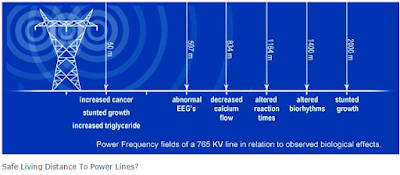The association between power lines and cancer has been a subject of study and debate for several years. Power lines emit electromagnetic fields (EMFs), and there have been concerns that prolonged exposure to these fields may increase the risk of cancer. However, the scientific evidence regarding this topic is still inconclusive.
Various studies have been conducted to investigate the potential link between power lines and cancer, particularly childhood leukemia. Some studies have suggested a weak association between long-term exposure to magnetic fields from power lines and a slightly increased risk of certain types of cancer, while other studies have not found a significant correlation.
The International Agency for Research on Cancer (IARC), which is part of the World Health Organization (WHO), has classified extremely low-frequency magnetic fields as "possibly carcinogenic to humans" based on limited evidence. However, it is important to note that this classification does not indicate a definitive cause-and-effect relationship but rather highlights the need for further research.
The levels of electromagnetic fields that people are typically exposed to from power lines are considerably lower than the levels that have been shown to cause direct biological effects in laboratory studies. Nonetheless, as a precautionary measure, some organizations and authorities recommend maintaining a distance from high-voltage power lines, especially for prolonged periods.
If you have concerns about power lines and their potential health effects, it is advisable to consult with local health authorities or experts who specialize in this field, as they can provide more specific information based on the current research and guidelines in your region.

